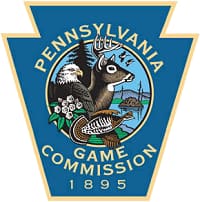Cholera Cancels Some Pennsylvania Pheasant Releases
OutdoorHub 12.20.13

The 2,400 pheasants placed under quarantine following detection of avian cholera at a Pennsylvania game farm will not be released for late-season hunting.
Arrangements are being made to humanely depopulate and dispose of the affected flock at the Pennsylvania Game Commission’s Loyalsock Game Farm.
Avian cholera is an infectious bacterial disease affecting domestic and wild birds, and is the most significant infectious disease of wild waterfowl in North America.
As noted in the Wildlife Disease Reference Library available at the Game Commission’s website, an avian cholera outbreak in Pennsylvania’s wild bird populations has never been documented. Avian cholera is diagnosed annually at about a dozen poultry and game-bird production facilities in the commonwealth, but this is the first occurrence at a Game Commission game farm in nearly a decade.
The strain diagnosed at Loyalsock Game Farm last week is considered by veterinarians to be a mild strain with relatively low levels of daily mortality. Following detection, Game Commission staff consulted animal and wildlife health experts at Penn State and elsewhere, who advised treating the infected flock with antibiotics prior to a subsequent release.
The antibiotic treatments have proven effective and daily mortality of birds has decreased to baseline levels in the flock, but given the risk that some surviving birds could remain carriers of the bacteria causing the disease, the Pennsylvania Game Commission has reconsidered its earlier decision and chosen to abandon plans to release the pheasants.
Game Commission Executive Director Carl G. Roe said the decision was not made lightly.
The commission raises pheasants for the sole purpose of releasing them, and providing a valued small-game hunting opportunity for hunters, Roe said.
Propagation is a significant investment, funded in large part by revenues from the sale of hunting and furtaker licenses, he said. And it’s frustrating when that end product can’t be given back to hunters, he said.
“In this case, however, we felt we had to cut our losses and minimize the risk to wildlife populations,” Roe said.
Roe said even the slight chance a released bird could continue to carry the disease is a risk Game Commission staff currently is unwilling to take.
The quarantined flock will be euthanized using carbon-dioxide chambers and disposed of by deep burial on the farm.
“As always, we will be taking the appropriate biosecurity steps to ensure a clean facility,” he said.
Rodents and mammalian predators are suspected bacterium sources in this outbreak and we will be reviewing and upgrading our disease vector control protocols, as well as our other biosecurity protocols and standards.
Located northeast of Williamsport, the Loyalsock Game Farm provides pheasants for release in Wildlife Management Units (WMUs) open to either-sex pheasant hunting. The 2,400 birds placed under quarantine had been slated for release Dec. 20 in Berks, Bucks, Carbon, Chester, Clearfield, Cumberland, Franklin, Lehigh, Monroe and Montgomery counties.
Even without those pheasants, the Game Commission has surpassed its goal of releasing 200,000 pheasants statewide this year. About 218,000 birds have been released this year.
Late-season pheasant hunting opened statewide Dec. 16. Only males may be harvested in some WMUs, while other WMUs are open to hunting of male or female pheasants. For local regulations, consult the 2013-14 Pennsylvania Hunting & Trapping Digest.
Pheasant season is closed Christmas Day, but otherwise runs until Feb. 22.
For more information on wildlife diseases, visit the Wildlife Disease Reference Library at the Game Commission’s website, www.pgc.state.pa.us.

